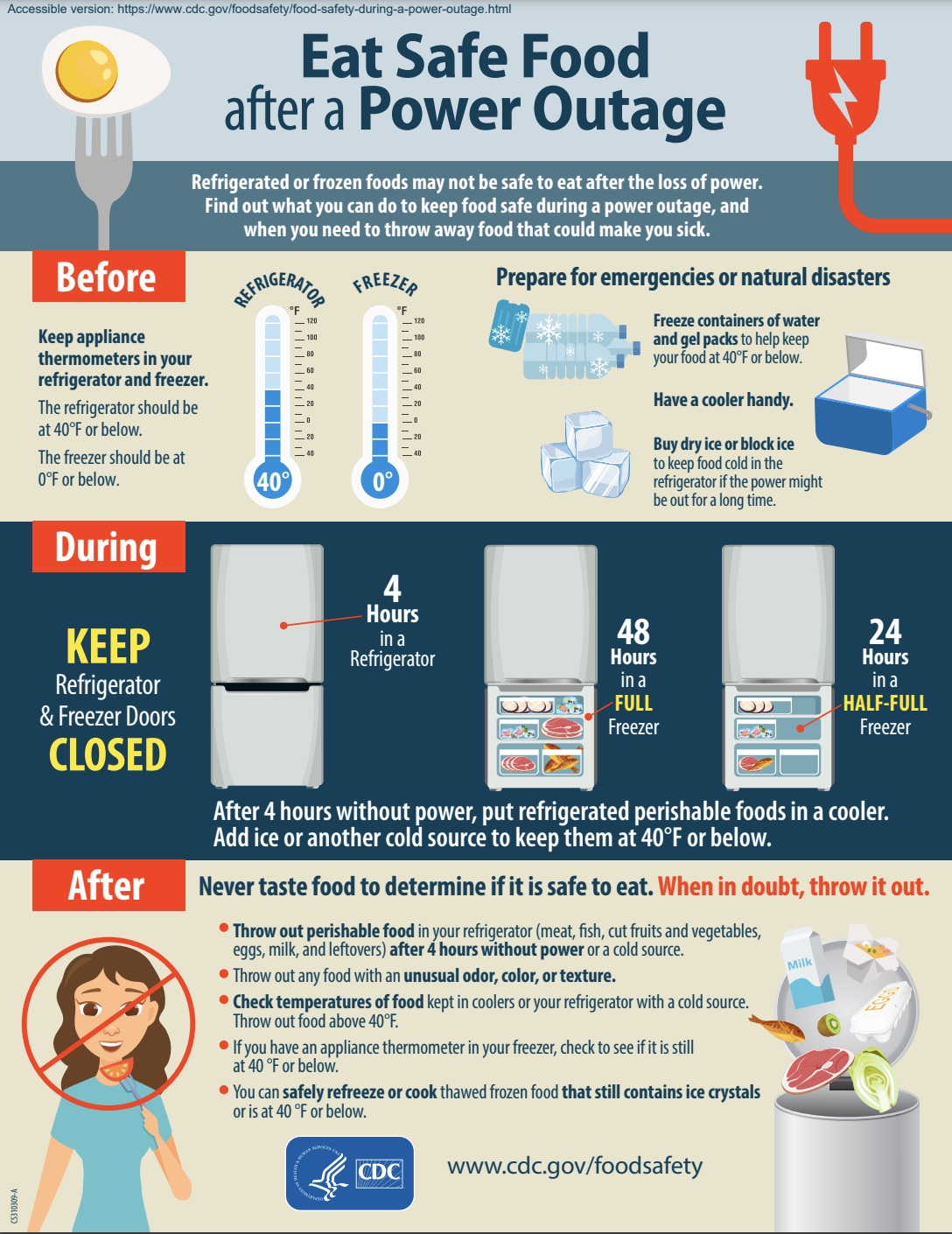Food Safety During Power Outages
go.ncsu.edu/readext?1018803
en Español / em Português
El inglés es el idioma de control de esta página. En la medida en que haya algún conflicto entre la traducción al inglés y la traducción, el inglés prevalece.
Al hacer clic en el enlace de traducción se activa un servicio de traducción gratuito para convertir la página al español. Al igual que con cualquier traducción por Internet, la conversión no es sensible al contexto y puede que no traduzca el texto en su significado original. NC State Extension no garantiza la exactitud del texto traducido. Por favor, tenga en cuenta que algunas aplicaciones y/o servicios pueden no funcionar como se espera cuando se traducen.
Português
Inglês é o idioma de controle desta página. Na medida que haja algum conflito entre o texto original em Inglês e a tradução, o Inglês prevalece.
Ao clicar no link de tradução, um serviço gratuito de tradução será ativado para converter a página para o Português. Como em qualquer tradução pela internet, a conversão não é sensivel ao contexto e pode não ocorrer a tradução para o significado orginal. O serviço de Extensão da Carolina do Norte (NC State Extension) não garante a exatidão do texto traduzido. Por favor, observe que algumas funções ou serviços podem não funcionar como esperado após a tradução.
English
English is the controlling language of this page. To the extent there is any conflict between the English text and the translation, English controls.
Clicking on the translation link activates a free translation service to convert the page to Spanish. As with any Internet translation, the conversion is not context-sensitive and may not translate the text to its original meaning. NC State Extension does not guarantee the accuracy of the translated text. Please note that some applications and/or services may not function as expected when translated.
Collapse ▲Did you know that Extension Family and Consumer Science Agents can offer information on food safety during power outages?
Hurricane Debby has made landfall in South Carolina and is projected to move slowly, causing widespread flooding in the Carolinas and Virginia, according to The Weather Channel.
Be prepared! Check out this Home Food Safety Guidance from The Partnership for Food Safety Education:
- Having appliance thermometers will help you closely monitor the status of your refrigerator and freezer.
- As a backup option, it is a good idea to have a cooler or two on hand, as well as ice, frozen gel packs, dry ice to maintain a safe temperature in the cooler.
- Refrigerators will typically hold a safe temperature for about four hours.
- Your freezer, if packed full, will hold food at a safe temperature for about 48 hours with no power — at half full, the time decreases to 24 hours.
- Food is safe to refreeze if it still has ice crystals or if the freezer did not rise above 40 °F. Keep the doors closed to give your freezer the greatest chance at maintaining a safe temperature.





